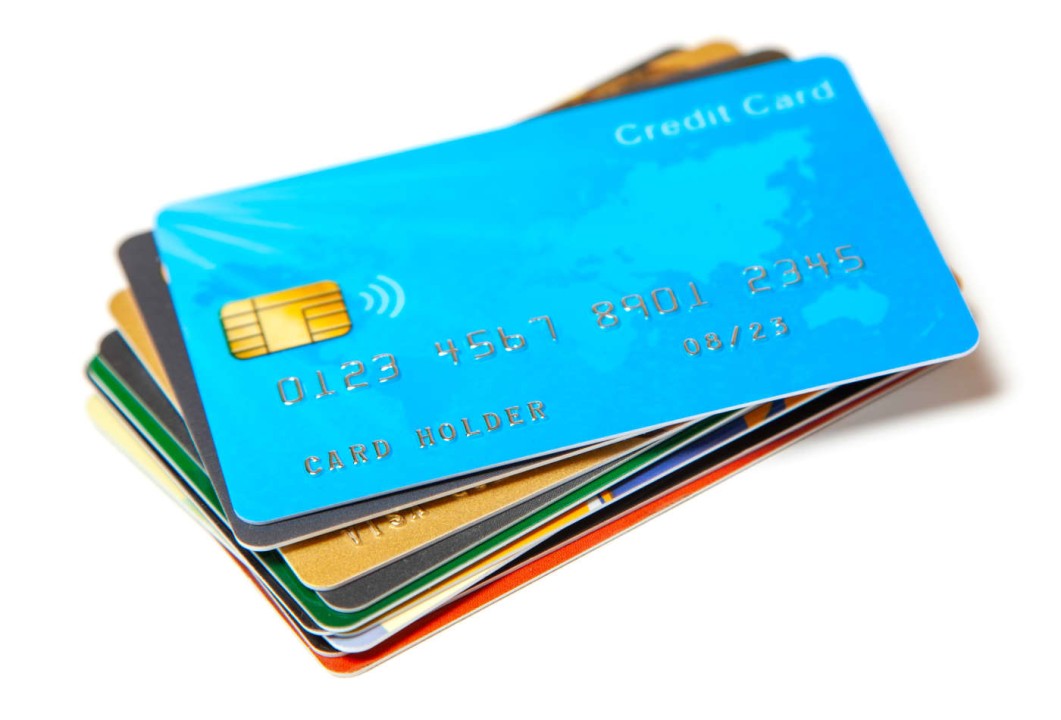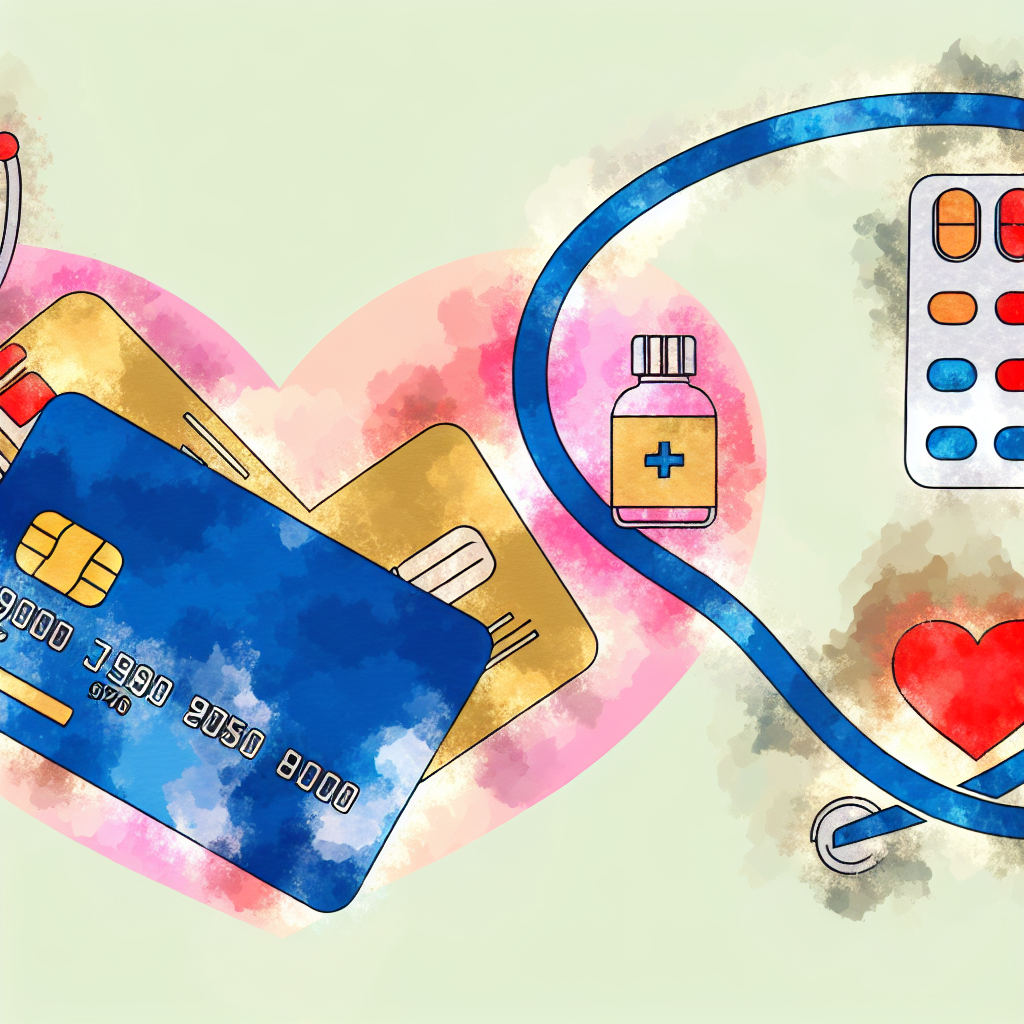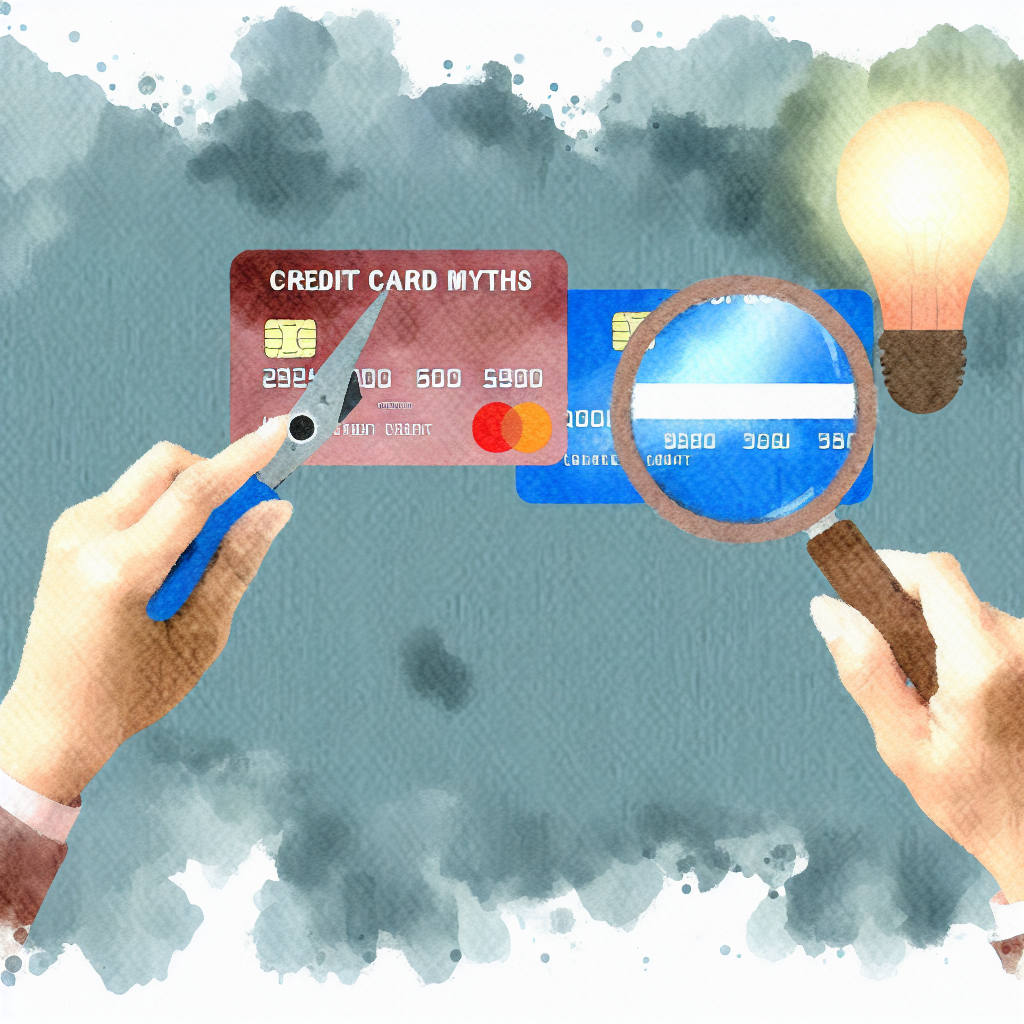If you’ve recently found out that your application for a credit card has been rejected, you’re not alone. Many individuals face this challenge, and it’s essential to understand that a credit card denial doesn’t spell the end of your financial journey. The primary steps to take involve analyzing the reason behind the rejection, exploring alternative options, and implementing strategies to improve your creditworthiness.
Credit card rejection can be daunting, especially if you were counting on it to manage your finances or build your credit history. However, knowing why your application was denied can help you address underlying financial issues. Common reasons range from poor credit score to insufficient income or even errors on your credit report.
Moving forward from a credit card rejection requires a structured approach: understanding the denial reasons, taking immediate steps to mitigate risks, exploring other financial instruments, and working steadily on improving your creditworthiness. This guide will walk you through each necessary step, offering alternatives and strategies to help you on your financial path.
In the broader spectrum, taking steps to improve your financial health—such as budgeting, saving, and seeking professional advice—can make a substantial difference. This multifaceted approach will not only enhance your chances of credit card approval in the future but also equip you with the tools to manage your finances more effectively.
Understanding Why Your Credit Card Application Was Rejected
Understanding why your credit card application was rejected is crucial in addressing the underlying issues and improving your financial standing. The reasons for rejection can vary but commonly include:
- Low Credit Score: Lenders use your credit score as a measure of your creditworthiness. A low score could indicate past financial trouble, making lenders hesitant to extend credit.
- High Debt Levels: If you already have significant debt, lenders might consider you a higher risk.
- Insufficient Income: Lenders need to see that you have enough income to manage the repayment of any credit you use.
- Errors in Credit Report: Mistakes on your credit report, such as incorrect late payments or unreported loans, can unfairly lower your score.
Taking the time to understand these reasons is the first step toward improving your credit profile. Nationwide agencies like Equifax, Experian, and TransUnion provide credit reports that can help you identify and address these issues.
It’s essential to ask the lender why your application was denied. This feedback is valuable for pinpointing the exact factors affecting your application. With this information, you can take the necessary steps to remedy the situation, such as paying off existing debts or correcting errors in your credit report.
Steps to Take Immediately After Credit Card Rejection
Upon receiving a credit card rejection, it’s natural to feel discouraged. However, immediate steps can be taken to improve your situation. First and foremost, ensure that you get a copy of your credit report from the major credit bureaus.
Check Your Credit Report for Errors
Review your credit report thoroughly for any inaccuracies. Mistakes such as incorrect late payments or accounts that don’t belong to you can unfairly impact your credit score. If you find errors, dispute them with the credit bureau to have them corrected.
Reduce Outstanding Debt
If high debt levels contributed to the rejection, focus on paying down your existing loans and credit card balances. This can improve your debt-to-income ratio, making you a more attractive candidate for future credit applications.
Establish a Regular Payment Schedule
Demonstrating a consistent track record of on-time payments can significantly boost your credit score over time. Set up reminders or automate payments to avoid missing any due dates, as punctuality plays a crucial role in credit-worthiness.
Exploring Credit Card Alternatives: Debit Cards and Prepaid Cards
While awaiting credit card approval, alternatives such as debit cards and prepaid cards can offer convenience and functionality without the risk of accumulating debt.
Debit Cards
Debit cards draw funds directly from your bank account, helping you manage and control your spending without incurring debt. They are ideal for individuals looking to avoid interest charges and potential credit issues.
Prepaid Cards
Prepaid cards require preloading money onto the card, allowing for similar functionality as a credit card without the borrowing aspect. They can be a helpful tool for budgeting and ensuring you don’t spend beyond your means.
Benefits and Drawbacks
| Option | Benefits | Drawbacks |
|---|---|---|
| Debit Cards | No risk of debt, instant access to funds | Limited to account balance |
| Prepaid Cards | No credit check required, set spending limits | Reloading fees, limited protection compared to credit cards |
While these alternatives do not build your credit history, they are useful tools in managing everyday expenses and preventing further financial strain.
Considering Secured Credit Cards as a Second Chance
For those struggling to qualify for traditional credit cards, secured credit cards can serve as a valuable pathway to rebuilding credit. These cards require an initial security deposit, which typically acts as your credit limit.
How Secured Credit Cards Work
The security deposit covers the lender’s risk, making it easier for individuals with low credit scores or limited credit history to qualify. By using and paying off the secured card responsibly, you can gradually improve your credit score.
Benefits of Secured Credit Cards
- Credit Building: Payments on secured credit cards are reported to credit bureaus, helping to establish or rebuild your credit history.
- Controlled Spending: The credit limit equals your deposit, which helps in preventing overspending.
Choosing the Right Secured Card
Look for secured credit cards with low fees and favorable terms. Some cards also offer a path to upgrade to an unsecured card after demonstrating responsible usage for a specific period.
The Importance of Reviewing Your Credit Report
A comprehensive review of your credit report is an essential step in understanding and addressing the issues leading to credit card rejection. This process can unveil various factors that might be hindering your creditworthiness.
Accessing Your Credit Report
Federal law entitles you to one free copy of your credit report annually from each of the three major bureaus. Utilize this right to regularly monitor your credit status.
Key Areas to Check
- Payment History: Ensure all recorded payments are accurate and up to date.
- Credit Utilization: Assess the ratio of your current debt to your available credit.
- New Credit Inquiries: Frequent applications for new credit can lower your score temporarily.
Disputing Errors
If you identify mistakes, file a dispute with the credit bureau. Correcting inaccuracies can lift your credit score, enhancing your chances of future credit approval.
Effective Strategies for Improving Your Credit Score
Improving your credit score is a critical factor in securing future credit. Several strategies can help enhance your score over time.
Timely Payments
Your payment history is a significant component of your credit score. Prioritize making timely payments on all your loans and bills to avoid negative marks.
Lowering Credit Utilization
Credit utilization—the percentage of available credit being used—is another crucial factor. Aim to keep this ratio below 30% by paying down existing balances and avoiding maxing out your cards.
Diversifying Credit Types
A mix of credit types (e.g., installment loans, retail accounts, credit cards) can be beneficial. Using different credit forms responsibly demonstrates your capability to handle various financial products.
| Factor | Importance |
|---|---|
| Payment History | 35% |
| Credit Utilization | 30% |
| Length of Credit History | 15% |
| New Credit | 10% |
| Credit Mix | 10% |
Employing these strategies can lead to gradual and sustainable improvements in your credit score, setting a solid foundation for future financial endeavors.
The Role of Budgeting and Saving in Financial Health
Budgeting and saving are foundational practices for maintaining financial health. These habits can prevent debt accumulation and enhance your creditworthiness.
Creating a Budget
Start by tracking your income and expenses. Identify areas where you can cut costs and allocate funds toward debt repayment and savings.
Emergency Fund
Building an emergency fund can provide a financial cushion for unexpected expenses, reducing the reliance on credit. Aim to save three to six months’ worth of living expenses for stability.
Regular Savings Contributions
Consistently saving a portion of your income can strengthen your financial resilience and ability to handle larger expenses without relying on borrowing.
Establishing Credit Through Small Loans or Store Credit Cards
Establishing credit can be challenging without a credit history, but small loans or store credit cards can serve as accessible starting points.
Small Loans
Applying for small, manageable loans from a credit union or local bank can help build your credit. Ensure timely repayment to positively impact your credit report.
Store Credit Cards
Retailers often offer store credit cards with lenient approval criteria. Using these responsibly can contribute to credit building, provided you avoid high-interest rates and pay off balances promptly.
Considerations for New Credit
Avoid applying for multiple credit lines simultaneously, as numerous inquiries can temporarily lower your credit score. Balance new credit applications with your ability to manage payments effectively.
Using Authorized User Status to Build Your Credit
Becoming an authorized user on someone else’s credit card can help you build credit without the responsibility of full account ownership.
How It Works
An authorized user has access to a credit card account but is not legally obligated to repay the debt. The primary account holder’s credit activity is reported on your credit report, potentially boosting your score.
Benefits and Risks
- Benefits: If the primary cardholder has a good payment history and low credit utilization, this positive activity can reflect on your credit report.
- Risks: Any negative activity by the primary cardholder, such as missed payments, can harm your credit.
Selecting the Right Opportunity
Choose a cardholder with a strong credit history and solid financial habits. Discuss expectations and monitor the account to ensure it benefits your credit profile.
Seeking Professional Financial Advice for Long-term Solutions
Professional financial advice can provide personalized strategies and support for rebuilding credit and improving financial health.
Financial Counseling Services
Non-profit agencies offer free or low-cost counseling services to help you develop a plan for debt repayment, budgeting, and credit improvement.
Credit Repair Organizations
Be cautious with for-profit credit repair services. Ensure they are reputable and avoid those that promise quick fixes or engage in illegal practices.
Benefits of Professional Guidance
A financial advisor can help you understand complex financial products, negotiate better terms, and navigate the credit improvement process effectively, leading to sustainable financial health.
Monitoring Progress and Reapplying for a Credit Card Successfully
Once you’ve taken steps to improve your credit profile, continuous monitoring and strategic reapplication can increase your chances of credit card approval.
Regular Credit Checks
Monitor your credit report regularly to track improvements and ensure no new inaccuracies impact your score. Use tools like credit monitoring services to stay informed.
Strategically Reapplying
Give yourself time to establish a better credit profile before reapplying. Aim for a significantly improved credit score, stable income, and reduced debt levels for a stronger application.
Choosing the Right Credit Card
Select a credit card that aligns with your current financial situation. Compare various options and focus on cards with lenient approval criteria and beneficial terms to increase your chances of success.
In conclusion, being denied a credit card may initially feel like a setback, but it can also be an opportunity to improve your financial health. By understanding the reasons behind the rejection, you can take actionable steps to enhance your credit profile. Whether it involves disputing errors on your credit report, seeking out alternative financial products, or strategically working to rebuild your credit, each step brings you closer to achieving your financial goals.
Adopting good financial habits such as budgeting and saving, and seeking professional financial advice, can provide you with a solid foundation for the future. By monitoring your progress and understanding the appropriate time to reapply for credit, you pave the way for a more successful financial journey ahead.
Ultimately, the key lies in persistence and informed decision-making. Building a solid credit history takes time and effort, but the rewards—access to better financial products, lower interest rates, and greater financial flexibility—are well worth the investment.
Recap
- Understanding Rejection: Know why your credit card application was rejected to address issues.
- Immediate Actions: Review your credit report for errors, pay down debt, and establish a payment schedule.
- Alternatives: Consider debit cards and prepaid cards to manage expenses without credit.
- Secured Credit Cards: Use as a second chance to rebuild credit.
- Credit Report Review: Regularly check and dispute any inaccuracies.
- Improving Credit Score: Focus on timely payments, lowering credit utilization, and diversifying credit.
- Budgeting and Saving: Essential for financial health and reducing reliance on credit.
- Small Loans or Store Cards: Helpful in building credit history responsibly.
- Authorized User Status: Leverage to build credit using someone else’s account.
- Professional Advice: Use financial counseling for personalized strategies.
- Monitoring and Reapplying: Monitor progress and reapply strategically with a better profile.
FAQs
- Why was my credit card application rejected? Common reasons include low credit score, high debt levels, insufficient income, or errors on your credit report.
- What immediate steps should I take after rejection? Get a copy of your credit report, check for errors, reduce outstanding debt, and establish a regular payment schedule.
- Can I still manage my expenses without a credit card? Yes, you can use alternatives like debit cards and prepaid cards to manage your expenses without borrowing.
- How can I rebuild my credit? Consider using secured credit cards, making timely payments, and keeping your credit utilization low.
- Are secured credit cards a good option? Yes, they help in rebuilding credit as your payments are reported to credit bureaus.
- Should I seek professional financial advice? Yes, professional guidance can help develop a strategy for debt repayment and credit improvement.
- When should I reapply for a credit card? Reapply after significantly improving your credit score, having stable income, and reducing your debt levels.
- What are the benefits of regular credit report reviews? It helps in identifying and correcting errors, monitoring progress, and staying informed about your credit status.











